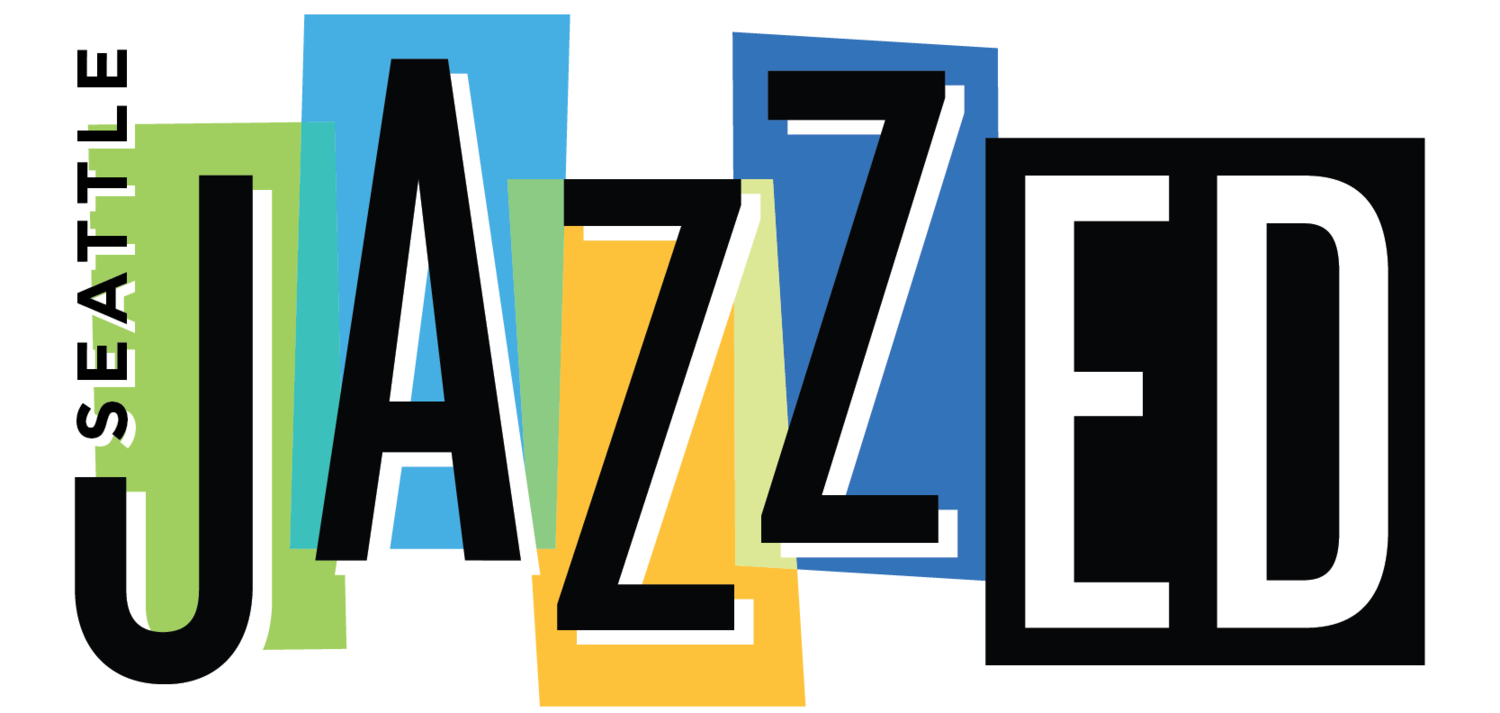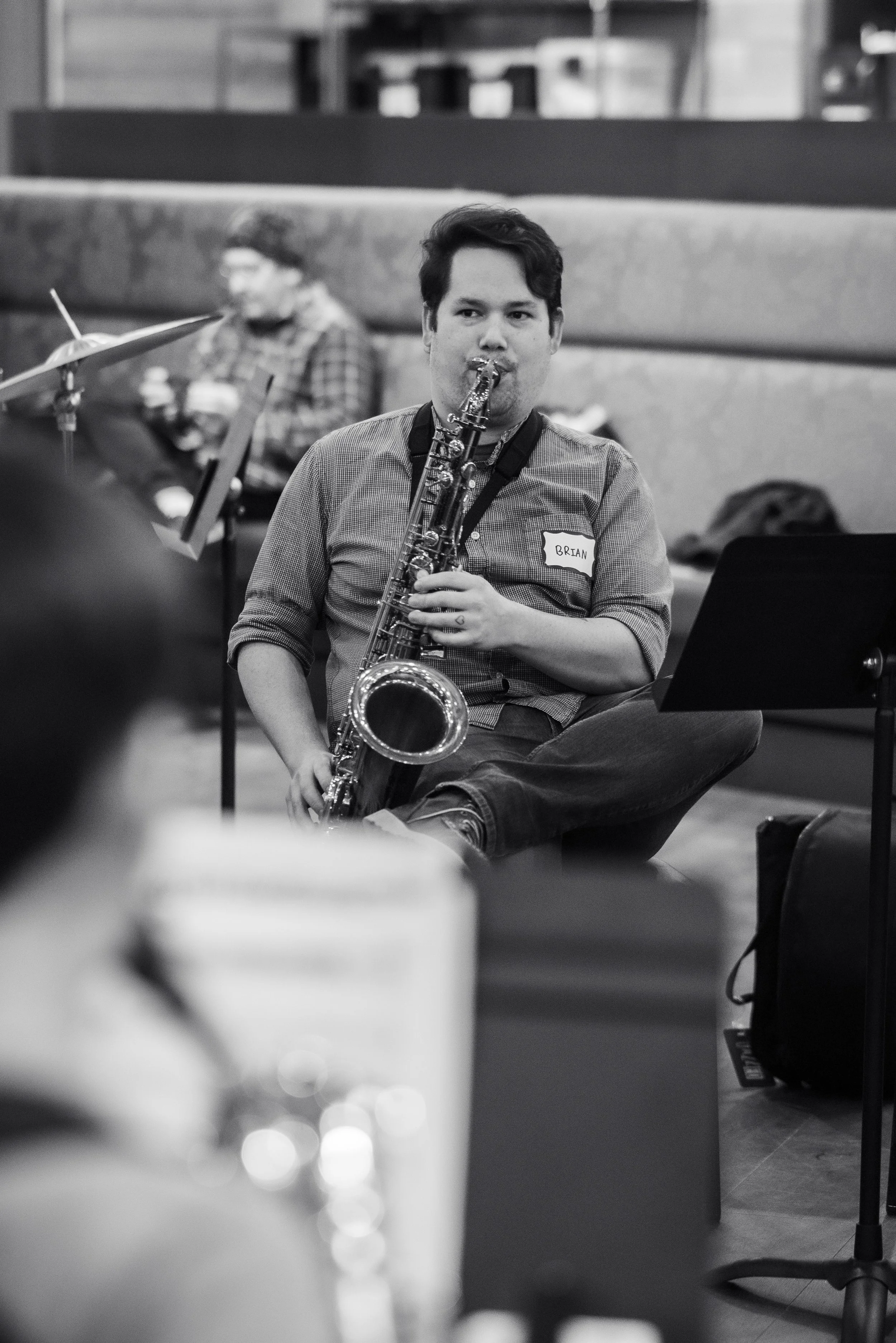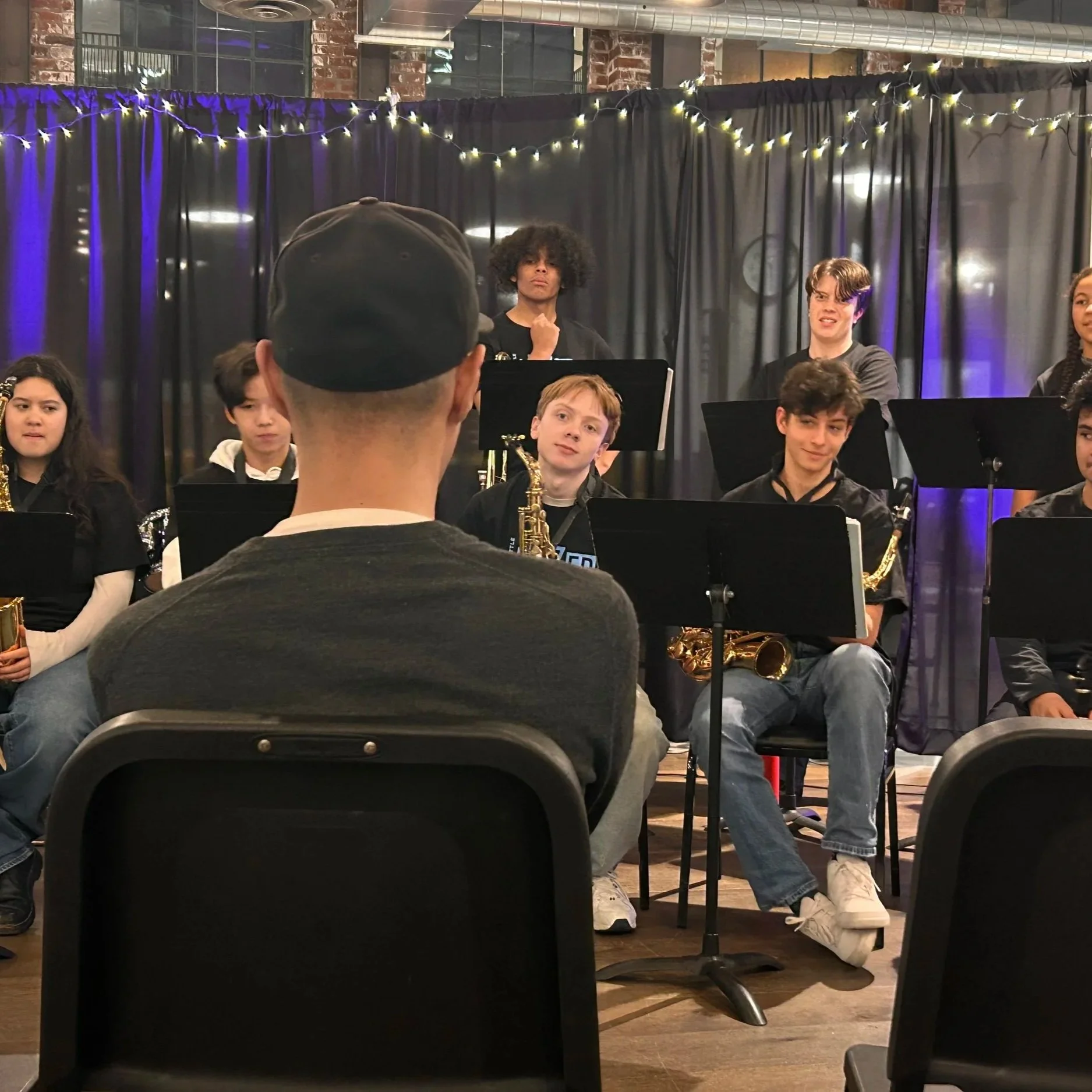The Joy of Jazz: Meet Teaching Artist Brian Bermudez
/Have you ever wondered what it takes to be a professional jazz musician?
Many of Seattle JazzED’s students are interested in gigging, but JazzED teaching artist Brian Bermudez says that the transition from playing music to becoming a professional is a whole different conversation.
We recently had the chance to talk with Brian to learn about why jazz attracts passionate individuals towards this lifelong pursuit, what jazz means to him, and how his students inspire our community.
Brian’s own musical experience began early. He grew up listening to his mother play the piano and his father sing. He also experienced the lively karaoke culture of his Filipino heritage at family gatherings.
By fourth grade, he began private lessons for the recorder and clarinet. A year later, he kicked off his thirty years of experience with the alto sax. In high school, he joined the jazz band and continued playing throughout university.
Brian Bermudez co-Teaching with Shaina Ellis at a Summer FOundations Camp. Photo by Jocelyn RC
And just three years ago, he became a teaching artist at Seattle JazzED. Today, thanks to a lifetime of learning, he now plays an impressive nine instruments, ranging from piano to saxophone, and specializes in the tenor sax.
But his music education wasn’t all smooth sailing. He now reflects that the community plays a large role in making music. In high school, he was part of “big band culture”, which he now calls “football jazz” — emphasizing competitions rather than playing for enjoyment. But when he went to college in New York, that changed. There, nobody had that mindset and instead would tell fond stories of their “community back home.”
That change of perspective showed him that community is what makes JazzED special. He says this “fun” and “enlightening” group aligns with his primary goal of helping students experience the joy of making music.
Because meaningful communities are so powerful, his favorite music to listen to is the music of people he knows, such as friends, fellow musicians, and local artists. This is because jazz music becomes personal when it tells the story of the individual.
When it comes to diversity, Brian appreciates JazzED’s inclusive approach. Growing up as an Asian American, Brian mostly saw privileged kids and a lack of people of color in music spaces. He loves that JazzED infuses inclusivity into every aspect of our programs — a “special lens of equity,” as he calls it. JazzED’s tight-knit and dynamic group is the perfect place for young musicians to build themselves up.
So, what makes teaching at Seattle JazzED so fulfilling?
For Brian, it comes down to two guiding lights: “lifelong friends [and] lifelong love for music.” He loves having the ability to nudge students towards a deeper appreciation for jazz and to find themselves through the process.
Brian Bermudez at a Fall Jam Session. Photo by Jocelyn RC.
Jazz is all about unapologetic self-expression. Sometimes, playing a solo loud and proud is just what a performance needs. Brian specifically said soloing is an “integral part of jazz” and hopes to plant the seed of confidence within students.
He also enjoys seeing how music helps students grow. Early in his teaching career, he met a student who struggled for weeks to make a sound on the flute. When he finally did, Brian saw his gratifying excitement. He says students have both an eagerness to learn and a journey towards technical improvement, and this story is a perfect example of how “music teaches children resiliency and goal setting. ‘Effort in’ is rewarded.” Brian thinks this aspect of music education is particularly valuable.
Brian helps students based on their individual needs and meets them where they are. His previous mentors had used a mixture of “right brained,” or creative thinking and “left brained,” or analytical thinking. He personally leans right brained because he believes “why we make music is important.” But he likes that JazzED honors both aspects. For example, honoring the history of jazz requires both intuition and concrete thinking. At the end of the day, he shares that “Your interpretation of those rules is what makes your sound yours.”
If you are a young musician, we hope Brian’s words inspire you to keep playing and finding joy in every note.
Interview and article written by Seattle JazzED Summer Intern, Denise Chang










